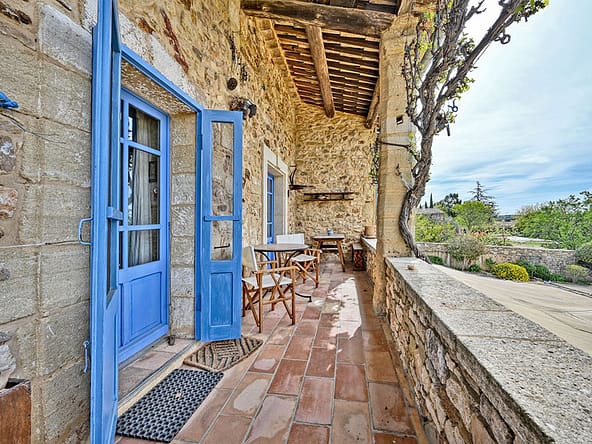Investing in property abroad is an exciting first step toward a totally new future, but it can also be a very problematic and stressful process if you don’t do your research and properly plan. Thanks to how connected the world has become, you can do most of the research and purchase property abroad without having to travel too much. Here’s what you need to know about finding the perfect overseas property investment.
Table of Contents
Have a good reason for making the best overseas property investment
Make sure you have a reason for investing beyond, “This will be an interesting experience!” For example, if you stick with your local real estate market, you may miss out on larger returns. By branching out, you can take advantage of markets that are flourishing and that show a lot of promise. Or, making an overseas property investment may be your way to ensure you always have a holiday destination to escape to. When you’re not there, the property could offer great rental potential.
Focus on one property at a time
Even if your plan is to purchase several investment properties, it’s best to start with just one. Your capital has to stretch a lot per property, covering all of the basic costs, third-parties and fees that have to be paid. If you have a single investment, you’ll reduce the number of transactions that need to go through, as well as the possibility of mistakes.
Choose a reliable location
Don’t think too outside-the-box when it comes to location; search for property in established markets. Even an up-and-coming location won’t provide enough security to make you feel comfortable, especially if you’re a first-time investor. You’ll also have a better chance of getting a reasonable mortgage this way. Also, buy property in a location that’s easy to access and that’s close to amenities. This will benefit you as well as your renters.
Consider rental seasons
Think about when you’ll want to rent out your property. If it will be your main home other than when you travel during the summer, you can look into locations that have a strong tourism season during the summer months. If you want to rent it out year-round or during the colder months, choose a location that gets a lot of sunshine and warmth no matter the time of year, like the French Riviera.
Leave a paper trail behind you
Whenever you enter into a property deal, get the details in writing. While it may seem more convenient to speak in person or on the phone, conducting business via email means there’s a paper trail. This is even more important when you speak a different first language from those you’re dealing with because misunderstandings are more prevalent.
Hire a translator
Even if you speak the language conversationally, you could miss an important detail if you neglect to have documents translated. Hire a translator yourself instead of using one that the seller or mortgage company suggests. You want to make sure that the translator has your best interests in mind, which means translating the documents accurately.
Be careful with new development properties
While buying a brand new property does have its perks, buying off plan can be risky. If the property isn’t finished yet but you’re hoping to purchase it before it’s completed, ask to see some of the developer’s other projects from recent years. They should be able to show you successful properties they’ve developed. Also, make sure that the contract states that you’ll get a full refund if the development isn’t completed within a certain time period.
Make sure the title is accounted for
It’s not as uncommon as you may think to go through with the buying process only to find out that the property owner doesn’t actually have the title. This means that they can’t technically sell the property, even if you’ve put in a ton of leg work. This is also common when it comes to new builds because the title may not even exist yet. Your solicitor should be able to check this out for you.
Hire a solicitor
You’ll need a solicitor as you go through the buying process, and it’s best to find one with local knowledge of the area where you’re buying. However, that doesn’t mean that the solicitor has to reside there. There are plenty of firms that specialise in property abroad while also having knowledge of your home’s financial system. Just make sure that the solicitor or legal firm you work with is licensed to practice in the country where you’re buying.
Find out about local taxes
Every country has its own tax laws. Determine what you’ll need to pay and how often payments are due. If you’ll be renting out your property, you may have to declare it as a rental property, which could also impact your taxes. It is a good idea to speak with a tax advisor who’s well-versed in taxes in the country and region where you’ll be buying.
Get a mortgage in your chosen destination
If possible, seek out a non-resident mortgage in the same area as the property. Local mortgage companies will have a wider selection of mortgages available, and you may also be able to secure a better rate. They’ll also have more knowledge of the local property investment laws. Plus, it may work in your favour to have the mortgage in the area’s currency because you’ll avoid payment issues when currency rates change.
Pay attention to exchange rates
You’ll have to make several transfers as you go through the different stages of buying your property. In addition to the currency exchange margin, consider the fees that the bank or exchange company takes. While you may assume that banks have the best exchange rates, you may find a better rate by working with a money transfer company. Speak with a currency specialist to determine the best option.
Home Hunts are here to help you to find your perfect overseas property investment. If you would like to speak to one of the team to discuss your needs or just to have a chat about the market, you can call us on +33 970 44 66 43 or send us a mail to info@home-hunts.com. If you just want to browse through thousands of beautiful French homes, visit our website at www.home-hunts.com or follow us on Facebook or Instagram.




